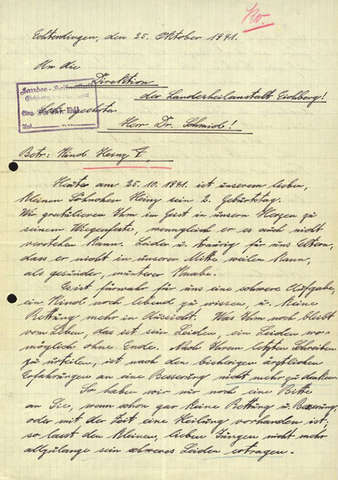Family members
Patients had often lost contact with their families because of the years they had spent in institutions. These patients in particular were affected by the selection of the T4 experts.
Relatives reacted in very different ways to the murders of psychiatric patients and nursing home residents. Where family ties still existed, they could help to save patients. Discharges at the last minute, protests directed towards the heads of the institutions or petitions to government offices sometimes saved patients from being murdered. However, the interventions of families could also be fruitless, their success mainly depending on the attitude of the institution directors and authorities.
Many family members took the news of their relatives' death without any visible reaction. There are also examples of relief being expressed at or consent being given to the death of patients. In these cases, the relatives saw the killing of their family member as a »release from suffering«. Some felt they had been liberated from a »burden«.
Such reasons – just like protests and rescue attempts – can also be found with parents whose children fell victim to the »Reich Committee« procedure.

© Saale-Zeitung (newspaper)

© Hessisches Hauptstaatsarchiv Wiesbaden, Abt. 430/1 Nr. 11074